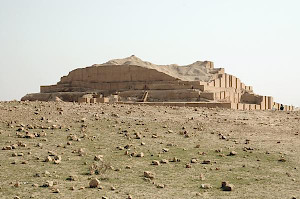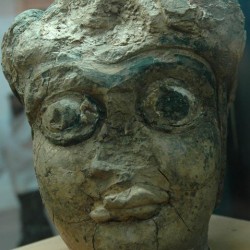Elam
Q128904Elam: ancient kingdom in the southwest of modern Iran, modern Khuzestan. Because its capital was Susa, it was also known as Susiana.

The Elamite kingdom, founded on the hot alluvial plain of the rivers Dez, Karun, and Marun, has a long history, during which its inhabitants were in various ways involved in the affairs of their Mesopotamian neighbors: the Sumerians and the Akkadians of southern Iraq, the Babylonians, the Kassites in the northeast, and the Assyrians in the far north, and the Persians in the east.
The capital of Elam was Susa; the Elamite language is unrelated to any other known language. One of the main sanctuaries was Dur Untaš (Choga Zanbil).
The Assyrian king Aššurbanipal subdues Elam in 643 BCE and gradually, it became part of what appears to have been the Persian zone of influence, which was originally focused on Anšan. The Achaemenid Empire continued many Elamite traditions, including the way a state ought to be governed.
In the Hellenistic age, Susiana ("the land of Susa") was part of the Seleucid and Parthian Empires. Later, the Sasanian Persians and Arabs took control. Nowadays, Khuzestan is the Arab-speaking part of Iran. The country is fertile and well-known for rice, sugar, linnen, and cotton.







